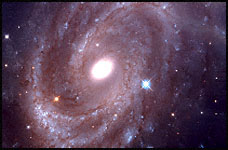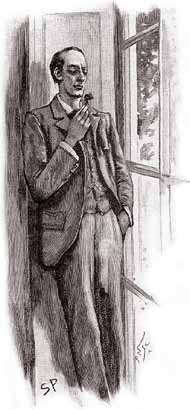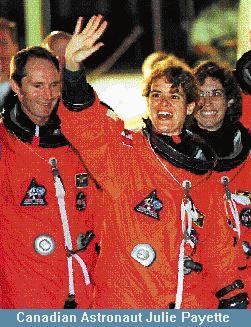Hansom Productions is the creative team of Margaret Murray and Gerry Uba of Toronto, Ontario, Canada. If you would like further information, please email [email protected]
 We are both fans
of Arthur Conan Doyle and Sherlock Holmes. Margaret is a former Meyers
of The Bootmakers of Toronto (i.e. ringleader of the local Baker Street
Irregulars). Hence the choice of the hansom emblem, from the age where
it is always 1895.
We are both fans
of Arthur Conan Doyle and Sherlock Holmes. Margaret is a former Meyers
of The Bootmakers of Toronto (i.e. ringleader of the local Baker Street
Irregulars). Hence the choice of the hansom emblem, from the age where
it is always 1895.
This site was last updated on
|
Ayn Rand and Objectivism Science Fiction Sherlock Holmes Spaceflight Favourite People & Things |
Ayn Rand and Objectivism
Men hate passion, any great passion. Henry Cameron
made a mistake: he loved his work. That was why he
fought. That was why he lost.People said that he never knew he had lost. If he
did, he never let them see it. As his clients
became rarer, his manner to them grew more
overbearing. The less the prestige of his name, the
more arrogant the sound of the voice pronouncing
it. He had had an astute business manager, a mild
self-effacing little man of iron who, in the days
of his glory, faced quietly the storm of Cameron's
temper and brought him clients; Cameron insulted
the clients, but the little man made them accept it
and come back. The little man died.Ayn Rand, The Fountainhead
Ayn Rand was born in Russia in 1905. She left to live in the United States in 1925. Interested in film from an early age, she pursued a career in Hollywood as a writer. Her first stage play Night of January 16th was produced on Broadway in the 1930s. Her first novel, largely autobiographical, was We the Living, published in 1936. This anti-communist story is more popular now than it was in the 1930s, though it was filmed in Italy during World War Two. With her second novel The Fountainhead in 1945, Rand established her place as an intellectual novelist and the proponent of a distinctive philosophy. The Fountainhead was also made into a motion picture, for which Rand wrote the screenplay, in 1948. Her 1957 publication Atlas Shrugged was the culmination of her career as a novelist, though she produced several collections of essays before her death in 1982. These non-fiction works, along with the extensive expository passages from her novels, comprise the foundation for the fundamental principles of her philosophy, Objectivism.
"When learning the use of firearms, a woman learns at the same time
confidence and self-possession. And are not these qualities of use
also in daily life, and therefore all the more worthy of cultivation?"
- Annie Oakley 1894

Science Fiction
--------------------------------------------------------------------------------NOTES TOWARD A DEFINITION OF SCIENCE FICTION
--------------------------------------------------------------------------------
To say that "science fiction" has no meaning other than to designate a merchandising category is to evade the question rather than attempt an answer. It simply leads to the obvious follow-up question of what works are placed (or misplaced) into that category, and why. Those complaining that a work is not SF are equally obligated to justify their exclusionary rule. Acknowledging that some works are undeniably borderline or marginally SF does not diminish the validity of the assertion that other works definitely are or are not. Exceptions don't prove the rule in the formulation of a definition, but they do show its limitations. Let's take a look at some factors that may lead us toward a definition of Science Fiction...
-----------------------------------------------------------------------------
Some definitions of Science Fiction...
-----------------------------------------------------------------------------
SAM MOSCOWITZ: Science fiction is
a branch of fantasy identifiable by the
fact that it eases the 'willing suspension
of disbelief' on the part of its
readers by utilizing an atmosphere of
scientific credibility for its
imaginative speculations in physical science,
space, time, social science and
philosophy.
DONALD A. WOLLHEIM: Science fiction
is that branch of fantasy, which, while
not true of present-day knowledge, is
rendered plausible by the reader's
recognition of the scientific possibilities
of it being possible at some
future date or at some uncertain period
in the past.
L. SPRAUGUE DE CAMP: Fiction based
upon scientific or pseudo-scientific
assumptions (space-travel, robots, telepathy,
earthly immortality, and so
forth) or laid in any patently unreal
though non-supernatural setting (the
future, or another world, and so forth).
ROBERT A. HEINLEIN: A handy short
definition of almost all science fiction
might read: realistic speculation about
possible future events, based solidly
on adequate knowledge of the real world,
past and present, and on a thorough
understanding of the scientific method.
To make the definition cover all
science fiction (instead of 'almost all')
it is necessary only to strike out
the word 'future'.
-----------------------------------------------------------------------------
A branch of fantasy ...
B U T
- scientific credibility, plausibility
- scientific possibilities
- scientific assumptions
- non-supernatural setting
- realistic speculation
- knowledge of the real world, scientific method
Then what about...
- faster-than-light space travel?
- time travel?
- psi phenomena?
- alternate/parallel universes?
Key elements:
Fantasy
Science
-------
-------
subjective
objective
imagination
verifiable observation
inspiration
reproducible experimentation
assumed credibility
tested hypotheses
magical, mystical universe empirical, physical universe
So add conceptual plausibility (more than just dramatic possibility, but not
really scientific, either) and extrapolation based on logical contingency
(i.e. realistic "what if" speculation)
as factors. However, eliminate the
logically impossible and maintain internal
consistency. For SciFi, science is the
foundation on which the fantasy is based
and which supports and strengthens it.
-----------------------------------------------------------------------------
CHARLES SHEFFIELD: In a sentence, albeit
a rather long one: I have never read
science fiction for the way it is written,
or for its larger-than-life heroes,
finely-drawn characters, or colorful settings,
but rather for its ideas
content, and mainly for its scientific
idea content. A story with good science
does not have to be a good story. It can
be a really lousy story with a
compelling idea at its heart. Thus, works
of science fiction can be flawed in
two different ways: by scientific illiteracy
or by literary illiteracy. The
opportunity to fail on two different fronts
is one reason why good science
fiction may be harder to write than any
other form of literature.
-----------------------------------------------------------------------------
Why "SciFi" and not "SF"?
I believe it was Damon Knight who derided "sci-fi" as "skiffy", i.e. a type of juvenile, degenerate, carelessly second-rate writing worthy of derision. That is a meaningful distinction, I suppose, but merely a reflection of Sturgeon's Law. That formulation (named for its creator, noted author Theodore Sturgeon) holds that "Ninety percent of Science Fiction is awful. As a corollary, 90% of everything is awful."
The SF/Sci-Fi distinction is carried on almost exclusively in literary science fiction. Virtually unrecognised in media other than the printed word, it is a simple way for published writers and their fans to deny that any other medium is an appropriate (or possible) venue for science fiction, moreover good science fiction.
Also, these same critics are likely to interpret "sf" as meaning "speculative fiction" rather than "science fiction". To me this does appear to beg the question of just what fiction is construed to be, if not speculative.
-----------------------------------------------------------------------------
IN MY OPINION...
Science fiction can be read simply for
entertainment, for the adventures and
heroism, but personally I (like Sheffield)
read SF for the ideas. In one of
Arthur Conan Doyle's Sherlock Holmes stories,
Holmes says of a country
detective that he "is an extremely competent
officer. Were he but gifted with
imagination he might rise to great heights
in his profession." The story is
"Silver Blaze" and the character is Inspector
Gregory. It is to Gregory that
Holmes recommends that he consider "the
curious incident of the dog in the
nighttime." "The dog did nothing in the
nighttime," Gregory responds.
"That was the curious incident," remarked
Sherlock Holmes.
A lack of imagination is a quality I share
with Inspector Gregory.
Fortunately, I have science fiction to
arouse my curiousty and inspire a
search for new ideas. What SF has that
simple fantasy lacks is the quest for
versimilitude and plausibility within
the context of an objective view of
reality that resolutely rejects philosophical
agnosticism. It's a view of the
universe (or several of them) in which
all things that are conceivable are
possible IF you obey the rules. (The challenge
presented by the difficulty
and adventure of identifying, understanding
and implementing these principles
of nature is a major theme in SF.) This
is an essential qualification, and
there is also the clearly implied assumption
that the rules are comprehensible
to human intelligence. The means for discovering
and understanding these rules
is the application of the scientific method
of inquiry and analysis. Of
course, the content of SF is foremost
imaginative speculation; real science is
merely the shell in which the story is
contained, and it's frequently a very
thin shell indeed. Still, that aura of
plausibility is the essence of the best
SF. If you can say "Yes, this could
really happen," then you have a good
science fiction story on your hands.
--------------------------------------------------------------------------------------------------------
Footnotes: SF definitions are from "The
SF Book of Lists" by Jakubowski &
Edwards. Sheffield's comment is from the
Spring 1987 issue of Thrust.
--------------------------------------------------------------------------------------------------------




 The Geographer by Jan Vermeer
The Geographer by Jan Vermeer


 This is
a
This is
a 